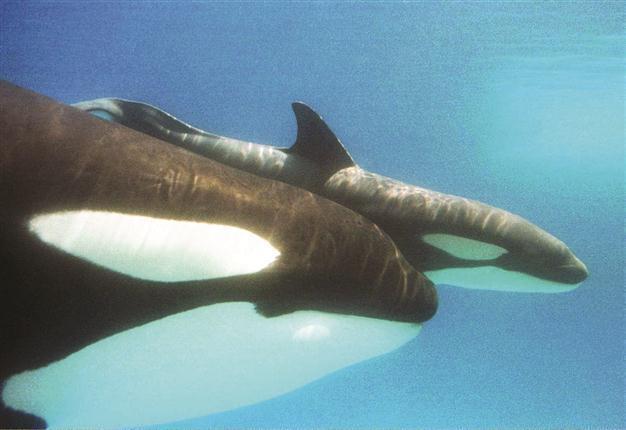Mammals suffering from ocean noise
BERGEN, Norway - Agence France-Presse

Sea mammals like whales and dolphins can’t communicate because of noise. Hürriyet photo
With the constant churn of freighter propellers, the percussive thump of oil and gas exploration and the underwater din of military testing, ocean noise levels have become unbearable for some sea mammals.
Contrary to the image of a distant and silent world under the sea, underwater sound intensity has on average soared 20 decibels over the past 50 years, with devastating consequences for wildlife.
“Sound is what cetaceans (large aquatic mammals like whales and dolphins) communicate with. For them, hearing is as important as vision is for us,” explained Mark Simmonds, the international director of science at the Whale and Dolphin Conservation Society (WDCS).
“If there is too much noise, they probably can’t communicate that well,” he said late last month on the sidelines of an international conference on migratory species in Bergen, on Norway’s southwestern coast. A harmful effect of this acoustic “fog” is that it impairs the ability of cetaceans, which in good conditions can communicate over a distance of dozens of kilometres (miles), to orient themselves, find food and reproduce.
Basic small boat traffic travelling at slow speeds through shallow waters can be enough to cut the reach of sounds from a bottlenose dolphin, for instance, by 26 percent, and in the case of pilot whales by 58 percent, according to a recent study.
Nicolas Entrup, who works with the Ocean Care and the Natural Resources Defense Council, said the ocean is in the process of becoming for sea mammals what night clubs are for humans: “You might cope with it for a while but you can’t live there.”
